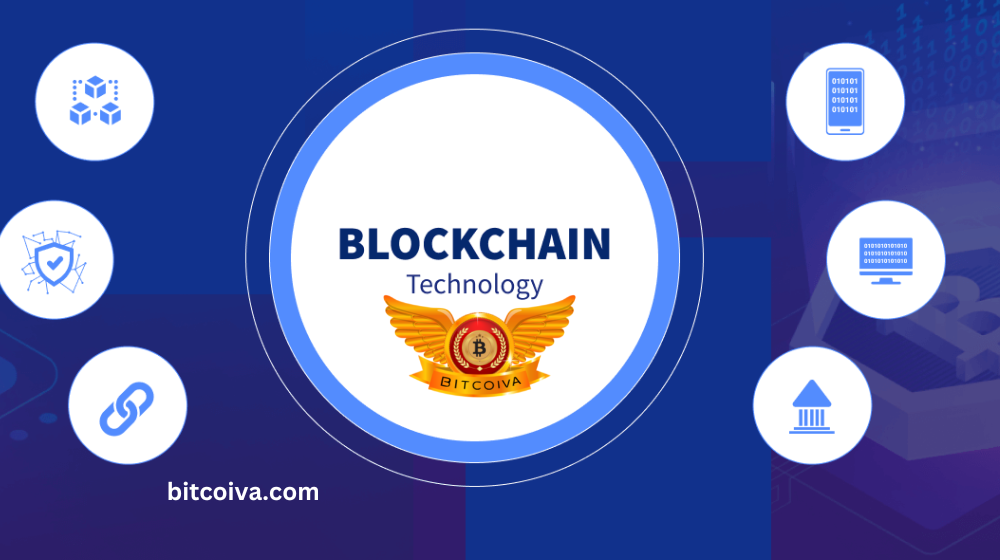With the advent of Bitcoin in 2009, blockchain technology was changed from a theoretical to a real application, demonstrating that this digital distributed ledger technology genuinely works. Businesses have been experimenting with how they, too, can make blockchain work for them since then.
Blockchain is being used by well-known corporations, government agencies, and non-profit organizations to enhance old procedures and allow new business models.
The benefit of blockchain arises from its capacity to transfer data among entities in a quick and secure manner. Without requiring any one entity to accept responsibility for preserving the data or enabling the transactions.
“It’s a ledger of transactions with unique characteristics, and those characteristics help address problems in our systems and processes,” explained Ayman Omar, an associate professor in the Department of Information Technology & Analytics at American University and a research fellow at the Kogod Cybersecurity Governance Centre.
In reality, whether employing a public blockchain network or private or permissioned blockchain-based applications, blockchain and its properties may give several benefits to enterprises.
Trust
Blockchain fosters trust between entities where trust is either absent or untested. As a result, these businesses are prepared to engage in commercial transactions or data sharing that they would not have done otherwise or would have required the assistance of an intermediary to complete. The ease of trust is one of the most commonly touted benefits of blockchain. The value of blockchain may be observed in early blockchain use cases. In which it facilitated transactions between organizations that did not have direct communication but needed to communicate data or payments. The most popular cryptocurrency in India, like Bitcoin and other cryptocurrencies, are famous examples of how blockchain builds trust between strangers on the crypto platform India.
Decentralized Structure
Blockchain truly demonstrates its worth when there is no central player to facilitate trust. According to Daniel Field, head of the blockchain at UST, a worldwide provider of digital technologies and services. As a result, in addition to aiding trust when participants lack trust due to unfamiliarity, blockchain promotes data sharing across an ecosystem of organizations in which no single organization has exclusive authority. The supply chain is a good example. Several organizations, ranging from suppliers and transportation firms to manufacturers, distributors, and retailers, want or need information from others in the supply chain, but no one is in charge of facilitating all of that information flow. Because of its decentralized structure, blockchain solves this conundrum.
Enhanced Security and Privacy
Another significant advantage of this developing technology is the security of blockchain-enabled applications. The increased security given by blockchain is due to the way the technology works. Blockchain produces an immutable record of transactions with end-to-end encryption, preventing fraud and criminal conduct in cryptocurrency exchange India. Furthermore, because data on the blockchain disperses across a network of computers, hacking is incredibly difficult. Unlike conventional computer systems that store data together in servers. Furthermore, blockchain can address privacy problems better than traditional computer systems by anonymizing data and requiring permissions to limit access.

Cost Savings
The nature of blockchain can also assist businesses in saving money. It improves transaction processing efficiency. It also lowers manual duties such as data aggregation and editing, as well as reporting and auditing procedures. Experts emphasized the benefits that financial institutions realize when implementing blockchain, saying that blockchain’s potential to speed clearing and settlement immediately translates into process cost reductions. In general, blockchain helps organizations save money by removing the middlemen – suppliers and third-party providers on the crypto app India. Who has traditionally performed the processing that blockchain can handle.
Speed
Because blockchain removes middlemen and substitutes residual human operations in transactions, it can handle transactions faster than previous systems. In some cases, blockchain can complete a transaction in a couple of seconds or less. However, time can vary. The speed with which a blockchain-based system can perform transactions controls a variety of factors, including the size of each data block and network traffic.
Nonetheless, experts have decided that in terms of speed, blockchain often outperforms traditional procedures and technology. In one of the most visible blockchain implementations, Walmart utilized the technology to track the origin of sliced mangoes in seconds. A procedure that had previously taken seven days.
Traceability and Visibility
Walmart’s usage of blockchain is about more than simply speed. It’s about being able to track the origin of those mangoes and other items. This enables businesses such as Walmart to better manage inventories, respond to problems or concerns, and validate the histories of their products. If a farm’s product must be recalled owing to contamination, a retailer utilizing blockchain may identify and remove the goods from that farm while leaving the other fruit for sale. Blockchain, according to experts, may assist in monitoring the origins of a range of things. Such as pharmaceuticals to ensure they’re genuine rather than counterfeit and organic items to ensure they’re truly organic.
Immutability
Immutability essentially implies that transactions cannot modify or removed after they have been recorded on the crypto currency trading platform using blockchain. All blockchain transactions are timestamped, and date stamped, resulting in a permanent record. As a result, blockchain may be used to monitor information throughout time. It allows a safe and trustworthy audit of data. This is in contrast to error-prone paper-based filing and out-of-date computer systems that may be destroyed or deactivated. Omar mentioned Sweden’s use of blockchain to digitize real estate transactions in order to keep track of property titles even as they change hands as an example of the possibilities of this advantage.
Data Control on an Individual Basis
Blockchain, according to experts, offers unparalleled degrees of individual sovereignty over one’s own digital data. “In a world where data is a valuable commodity, technology naturally preserves your data while simultaneously allowing you to govern it,” Michela Menting, research director at ABI Research, explained. Individuals and organizations may choose which parts of their digital data to share, with whom, and for how long, with constraints enforced by blockchain-enabled smart contracts. For example, Ethereum, one of the top 5 cryptocurrency in India, enables smart contracts.
Tokenization
It is the process of converting the value of an item (whether real or digital) into a digital token. This later stored on and shared through blockchain. Tokenization has gained popularity with digital art and other virtual goods. But it has broader implications that might improve commercial transactions, according to Joe Davey, director of technology at global consulting company West Monroe. Tokenization might be used by utilities, for example, to trade carbon emission permits under carbon cap schemes.
Innovation
Leaders in a variety of sectors are investigating and deploying blockchain-based solutions to solve intractable issues and improve long-standing inefficient procedures. As an example of such innovation, Field suggested the use of blockchain to authenticate the information on job candidates’ resumes. According to studies, a significant number of people fake their resumes. Like leaving hiring managers with the time-consuming duty of manually validating the information. Pilot efforts, however, allow participating universities to deposit data about their graduates and degrees on the blockchain. This can then be accessed by authorized hiring managers, helping to solve both issues. Getting to the truth and getting to the truth quickly and effectively.
Examples of Sectors that Have Benefited From the use of Blockchain
The benefits of blockchain technology extend throughout industries. Although certain industries and businesses are more suited to this technology than others. Businesses that, by definition, have several parties requiring access to the same data and want a better way to ensure that data has not been changed with are piloting programmes or moving test cases to full production.
The following are a few sectors that are benefiting from the blockchain.
- Financial organizations and their consumers are benefiting from quicker and less expensive clearing and settlement.
- Healthcare organizations are discovering that blockchain can secure the security of medical records and patient privacy while also allowing the option to share a patient’s data just as the patient permits.
- Non-profits and government entities have used smart contracts and other blockchain-based apps to generate immutable records that enforce agreed-upon rules.
Visit us: www.bitcoiva.com

